Welcome back to the Faculty Features series! Every Friday during this eight-week series we’ll be sharing a short interview with some of our faculty members; highlighting their teaching, upcoming courses, and getting to know them better! Today we’re featuring Professors Mark Evan Bonds, Daniel Huff, LaToya Lain, Ken Weiss, Brent Wissick, and Clara Yang.
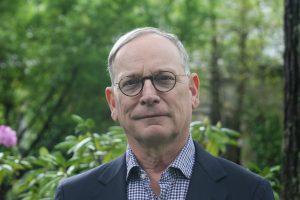
Professor Mark Evan Bonds
What is your position on faculty and what courses are you teaching next semester (and this summer, if applicable)? I’ll be a Fellow at the National Humanities Center in the Research Triangle Park in 2021–22 and so will not be teaching next year. I’m working on a new book that will survey the history of listening since the Enlightenment.
What is your favorite part of teaching? Learning. I always learn something when I think about the best way to convey my thoughts on a particular piece or particular idea.
What is the project that you’re most excited about currently? Music’s Fourth Wall and the Rise of Modern Listening, my book project for the NHC. When did listeners begin to perceive music not simply as an experience but as an object of contemplation? When did listening to music first come to be regarded as a skill that could be taught and acquired?
What are some of your non-musical hobbies? Cooking, hiking, rafting.
If your students could learn one thing from you, what do you hope it will be? Enthusiasm.
What music are you currently listening to? Schubert’s String Quartet in G, D. 887.
Anything else you’d like students to know about you or your teaching? Dogs keep us grounded as humans.
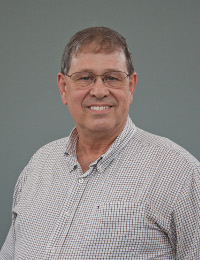
Clinical Associate Professor Daniel Huff
What is your position on faculty and what courses are you teaching next semester (and this summer, if applicable)? Officially, I coordinate the Music Education Program and work jointly with the School of Education and the Music Department to prepare Carolina students for positions teaching music in K-12 settings. I also conduct the Low Voice section of the Glee Club, teach classes associated with the Music Education Licensure Program (MUSC 227, 228 309, EDUC 601) and supervise students (EDUC 593) in their student teaching settings. Unofficially however, and probably more accurately, I serve as a direct and active connection between the Music Department and School of Education and NC music teachers linking the work we do here on campus with the work they perform with and for students where they work. So as part of that work, I have organized and taught in the UNC Music Workshop with the support of multiple Departmental colleagues and staffed by graduates of our programs during summers for 30 years. Through the GCLV, I also founded, organized and ran the All-Carolina Invitational Male Choral Festival for 15 years. The ensemble I conduct, the GCLV has toured for 31 years including two European trips, singing in schools and a variety of community settings. And I have conducted a ridiculous number of honors choruses of various sorts from All-City to All-County to the NCMEA MS and HS All-State choruses along with doing a lot of planned clinics in classrooms in all part of NC and adjoining states. So, I’ve kept busy. Not so much in the time of COVID.
What is your favorite part of teaching? I’m tempted to say all of it. But to be honest, although I try to do my part, I don’t really like writing reports about it. I really love making music, exploring the deeper and generally more hidden foundations of social and cultural processes as they play out in schools, and talking about teaching music with people. I love being be present when the light comes into people’s eyes when music leaves the printed page, when they find themselves playing a part in the creation of something beyond what they imagined or thought possible, or when they find that their efforts are appreciated, understood and applauded by others. I love being a catalyst for people and groups, vocally, musically, intellectually, and personally. I guess, in the end, I’m just an old person who loves to see others succeed.
What is the project that you’re most excited about currently? Not sure I have one- or perhaps excited isn’t the word that best describes what I am working on at the moment for reasons that will be apparent soon enough. But I am looking forward to doing some things I have long postponed- working for Habitat for Humanity, travel to some places that are just too far to go between the end of Spring semester, Music Camp and the beginning of the Fall semester, and working on some long-deferred improvements in house and yard. And I hope to do some writing and musical projects, festival choruses, and adjudication/clinician work.
What are some of your non-musical hobbies? Outside of the above, I love to read- pretty much anything but especially good historical fiction- and hope to begin bicycling again. But the latter is only so I have one more way to traumatize my grandchildren before they get too old to find that amusing. What am I saying, they’ve probably been too old for some time now but have chosen to be kind out of a sense of duty. Or maybe pandemic inertia.
If your students could learn one thing from you, what do you hope it will be? Honestly, I hope they learn what they need and some of what they want- or at least where to go to find either. And I hope they learn it sufficiently well to be able to go forward and learn on their own. I attempt to teach that many commonly used dichotomous variables are arbitrary and not very productive. E.G. teaching and learning are really simultaneous and mutually reinforcing events. Similarly, there can be no practice without theory and theory only finds meaning in its potential to illuminate and better understand practice. But I will be grateful if they learn something they feel is important- even if it’s notes and rhythms.
What music are you currently listening to? At the moment I just finished up a little setting of Veni Creator Spiritus by Cesar Franck and am working on an arrangement of a song from City of Angels for my singers. So those are stuck in my mind- for purely pragmatic reasons. But I confess to sitting in the parking lot at Hill recently listening to a recording on the radio of Perlman playing a violin concerto by Korngold. Probably I should have known the piece, but I didn’t. I was shocked and entranced by the endlessly spun melodies and the remarkable passion of the 2nd movement, the Romance. I went inside afterward and looked up Korngold and the piece itself and found myself pondering how easy it is to discount music from composers “tainted” by commercialization. And if then, what might I be missing about music now? Thank heaven for serendipity.
Anything else you’d like students to know about you or your teaching? I’ve probably already told you way too much! I suppose it’s possible to have a “better” job in some senses of the term. But I have spent a lifetime in a permanent state of awakening with people who have kept me thinking (and some would say acting!) young well beyond a normal framing of youthfulness. I still get calls and emails from former students from deep in my past asking me about things I said or taught 40 years ago and have begun to teach students whose parents I first met as children or young adults. All in all, for me, I don’t think there would have been a better way to spend a lifetime than making music with young people. I know conventional wisdom is that teachers are neither valued nor appreciated- and that may be true in some conventional ways of thinking. But I recommend it wholeheartedly for those who appreciate sunrises and surprises and who value finding and sharing music and music making.
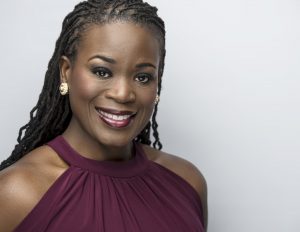
Assistant Professor LaToya Lain
What is your position on faculty and what courses are you teaching next semester (and this summer, if applicable)? I am an Assistant Professor on the voice faculty where I teach private individual vocal study as well as a First-Year Seminar class on The History and Performance Practice of Negro Spirituals.
What is your favorite part of teaching? My favorite part of teaching is when a student processes information, reimagines it in their own language, and then realizes it through their bodies and the music. We’ve heard Oprah Winfrey refer to this as the “Aha Moment.” She describes it as “remembering what you already knew, articulated in a way to resonate with your own truth.” For the most part, we are all born with the innate ability to produce a healthy sound. If you watch a baby cry, the process begins with an open-throated inhalation and the baby maintains that abdominal expansion on the exhalation and the release of sound. Their vocal mechanism is fully aligned, which is the reason a baby can cry for long periods of time without becoming hoarse. They haven’t yet “learned” to do it incorrectly. Unfortunately, as we grow, we develop unhealthy speaking habits, which transfers into our singing. When a student grasps a vocal technical concept or is able to unlearn the unhealthy habits of vocal production, especially one with which they’ve struggled, they are energized to practice more, motivated to continued improvement, and encouraged that they can achieve what they’ve set their minds to do. When this alignment happens in a voice lesson, it is the “AHA!” This is when the lesson becomes “fun” and the reason it’s my favorite part of teaching!
What is the project that you’re most excited about currently? Martha Flowers was the first black music faculty member at UNC-Chapel Hill. Not only was she an amazing and highly effective teacher, but she also enjoyed a very rewarding career as an international opera singer. Fellow voice faculty member, Dr. Marc Callahan, and I have decided to honor her legacy by establishing The Martha Flowers Opera Institute, a young artist program for Black, Indigenous, and People of Color (BIPOC) opera singers, conductors, and stage directors. It’s a four-week program with its inaugural summer set for 2023. The more I read about Mrs. Flowers, the more I am intrigued by her legacy and I am excited that we are honoring her in this most deservedly way.
What are some of your non-musical hobbies? I love to golf, having been taught by my long-time pianist and dear friend, it’s become one of our favorite ways to spend time together outside of music.
If your students could learn one thing from you, what do you hope it will be? I want my students to learn that what we do, in my opinion, is 20% technique and 80% confidence!! My job is to teach them to believe in themselves. Come what may, I repeatedly stress to them “GUARD YOUR CONFIDENCE! It’s one of your most valuable possessions and no one can take it from you unless you let them!”
What music are you currently listening to? I’m currently listening to a smorgasbord of musical genres that might be considered protest music, everything from Nina Simone to Public Enemy, as research for an article I’m writing. In my leisure, I listen to gospel, R&B, and 90’s hip-hop mostly.
Anything else you’d like students to know about you or your teaching? I consider it one of my purposes in this life; to inspire, encourage, and motivate my students to tackle any task head-on. I want them to leave my class with the energy and enthusiasm to conquer the world and the belief that they will be victorious!
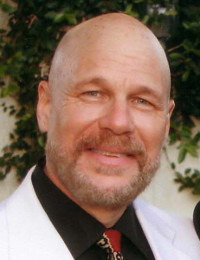
Entrepreneur in Residence Ken Weiss
What is your position on faculty and what courses are you teaching next semester (and this summer, if applicable)? As Arts Entrepreneur in Residence, a part of both the Music and the Economics Departments, I teach the track class in Arts Entrepreneurship in the Shuford Program in Entrepreneurship minor. Our next class will be Fall 2021.
What is your favorite part of teaching? Given the ever-changing nature of the arts industries, every semester is an exciting time to train and assist students who wish to develop careers in the arts or are just fascinated by its unique processes. My favorite part, always, is my students lighting up as they learn new information about an industry that presents publicly something quite different than they ever imagined.
What is the project that you’re most excited about currently? While the pandemic is a dreadful event in our history, the arts is responding to its challenges by transforming companies and individuals who are reimagining how projects are funded, marketed, and distributed. This opens the door to projects that in a more conventional environment would have great difficulty being produced. In that regard, I am working on a long-dormant feature film project about the life of Thelonius Monk and am very excited about its possibilities.
What are some of your non-musical hobbies? I am an avid reader of non-fiction – mostly biographies, history, and social philosophy (can that be a hobby?) I highly recommend “Homo Deus” (sub-titled “A Brief History of the Future”) by Yuval Harari.
If your students could learn one thing from you, what do you hope it will be? My students arrive in my class with a substantial intellectual capacity. But my mission is that they leave with intellectual curiosity, a more defining trait for success. I wish to instill in them a belief that they are capable of great accomplishments. ‘If I can do it, you can do it’ is a tag line I often use and mean it. When they believe that, I am grateful.
What music are you currently listening to? Early Louis Armstrong – from the 1920’s on. An extraordinary artist, a stand-alone giant in jazz and popular music, perhaps the most influential artist of the twentieth century. And I also try catching up on early blues, i.e. as early as Leadbelly and Robert Johnson and Bessie Smith. And then there’s Sister Rosetta Tharpe, more gospel and R&B – who may be as responsible for rock and roll as anyone, a truly groundbreaking artist.
Anything else you’d like students to know about you or your teaching? Come prepared to be creative, innovation being the foundation of entrepreneurship.

Professor Brent Wissick
What is your position on faculty and what courses are you teaching next semester (and this summer, if applicable)? I am a Full Professor who will teach cello lessons, Baroque Ensemble, Viol Consort, chamber music and the FYS on Physics/Music.
What is your favorite part of teaching? I love assisting people in the process of discovery and helping bright undergraduates as they become adult thinkers and life-long learners.
What is the project that you’re most excited about currently? I have always loved live concerts and teaching but am now excited by the many ways to share ideas about early music performance with Zoom and other online platforms. I’m doing this with musicians around the globe.
What are some of your non-musical hobbies? I love literature and am in a Reading Group. I also love travel and cooking.
If your students could learn one thing from you, what do you hope it will be? Be curious and never stop learning.
What music are you currently listening to? Bach cantatas
Anything else you’d like students to know about you or your teaching? I learn a great deal from my students.
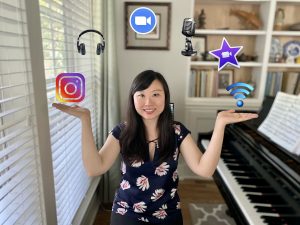
Associate Professor Clara Yang
What is your position on faculty and what courses are you teaching next semester (and this summer, if applicable)? I’m Associate Professor and head of piano studies. I’m teaching MUSC 200/300 advanced piano lessons and MUSC 211 piano improvisation this semester.
What is your favorite part of teaching? I love interactions with students and in particular when we exchange ideas. I have learned a lot from my students and from teaching in general. I enjoy exploring new repertoire with them, and I hope to continue to build a community for my students.
What is the project that you’re most excited about currently? I’m really excited about the upcoming virtual collaboration with the renowned jazz pianist Aaron Diehl on the Carolina Performing Arts series in June. We will be performing solo and two-piano works! As a classical pianist, I enjoy collaborating with artists outside classical music. In addition, elevating underrepresented composers is also essential in my performance and teaching activities. I’m working on a recording project of music by female composers with the award-winning violinist Sunmi Chang.
What are some of your non-musical hobbies? Food and travel, and website design. One of my guilty pleasures is playing video games!
If your students could learn one thing from you, what do you hope it will be? Keep an open mind and always be curious!
Anything else you’d like students to know about you or your teaching? Should I be honest? Just kidding. Besides old and new classical music, I enjoy listening to jazz, and I really like Billie Eilish! I love my rock guitar extraordinaire cousin Yvette Young’s music. She’s a real rockstar!
